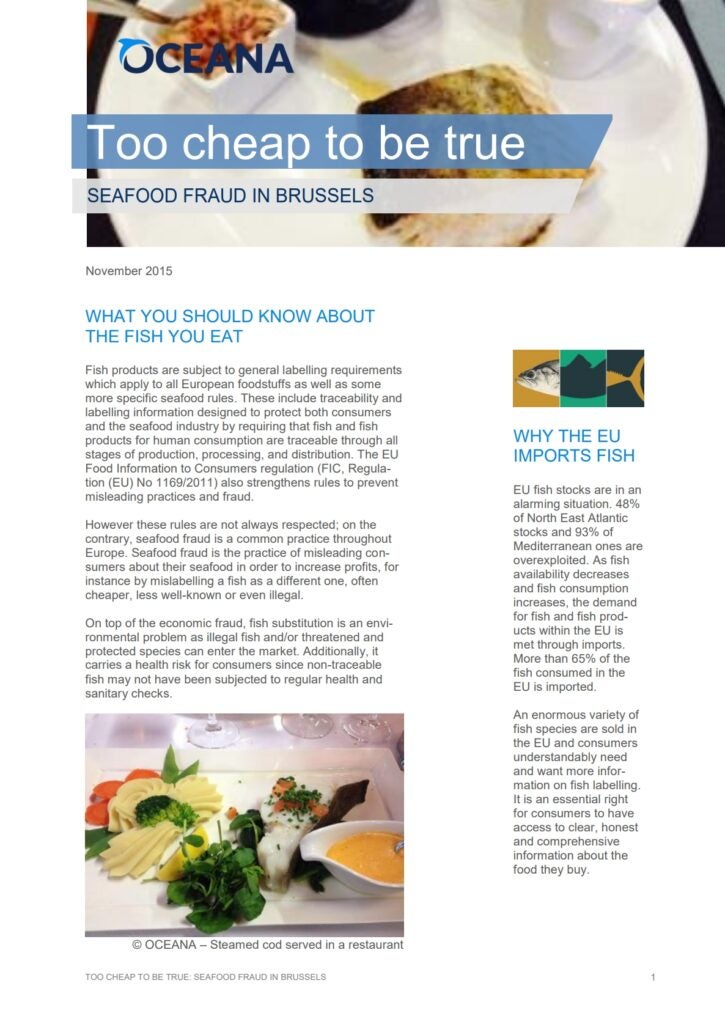Report | November 3, 2015
Too cheap to be true: Seafood fraud in Brussels
Fish products are subject to general labelling requirements which apply to all European foodstuffs as well as some more specific seafood rules. These include traceability and labelling information designed to protect both consumers and the seafood industry by requiring that fish and fish products for human consumption are traceable through all stages of production, processing, and distribution. The EU Food Information to Consumers regulation (FIC, Regulation (EU) No 1169/2011) also strengthens rules to prevent misleading practices and fraud. However these rules are not always respected; on the contrary, seafood fraud is a common practice throughout Europe. Seafood fraud is the practice of misleading consumers about their seafood in order to increase profits, for instance by mislabelling a fish as a different one, often cheaper, less well-known or even illegal. On top of the economic fraud, fish substitution is an environmental problem as illegal fish and/or threatened and protected species can enter the market. Additionally, it carries a health risk for consumers since non-traceable fish may not have been subjected to regular health and sanitary checks.


